Post-Traumatic Stress Disorder (PTSD) is a complex and often debilitating condition that affects millions of individuals worldwide. Traditionally, PTSD has been treated with a combination of psychotherapy and medication, such as antidepressants. However, these treatments can take weeks or even months to become effective, and some patients may not respond to them at all. Recently, ketamine therapy has emerged as a revolutionary approach to PTSD treatment, offering new hope to those who suffer from this challenging condition.
How Ketamine Therapy is Revolutionizing PTSD Treatment
Ketamine therapy for PTSD is changing the landscape of mental health treatment by providing rapid relief from symptoms. This therapy involves administering low doses of ketamine, an anesthetic and pain management medication, which has been found to have fast-acting antidepressant effects. Unlike traditional medications that target serotonin or norepinephrine, ketamine works on the brain’s glutamate system. This unique action promotes the growth of new neural connections, potentially reversing the damage caused by severe stress and trauma.
Dr. Clayton L. Allison, a psychiatrist trained at Mayo Clinic and UT Southwestern, explains: “Ketamine’s ability to rapidly reduce symptoms of PTSD is truly remarkable. It represents a paradigm shift in how we approach treatment, providing a viable option for patients who have not found success with other therapies.”
The Science Behind Ketamine Therapy for PTSD Relief
The science behind ketamine therapy is fascinating. Ketamine is believed to work by blocking the NMDA receptor in the brain, which plays a critical role in synaptic plasticity and memory function. This action helps to restore the balance of neurotransmitters in the brain, leading to improved mood and reduced symptoms of PTSD. Studies have shown that ketamine can produce significant reductions in PTSD symptoms within hours of administration, making it a valuable option for those who need immediate relief.
Brittany Huckaby, PHNP, a healthcare professional with extensive experience in intensive care, emphasizes the significance of this treatment: “Ketamine therapy offers a new pathway for healing. For many patients, it can provide relief when other treatments have failed, giving them a chance to regain control over their lives.”
Understanding Ketamine Therapy: A New Hope for PTSD Patients
For many individuals suffering from PTSD, ketamine therapy represents a new hope. Unlike traditional treatments, which often require a significant time commitment and may not work for everyone, ketamine can lead to noticeable improvements in a matter of hours or days. This rapid response is particularly beneficial for those experiencing severe symptoms, as it can provide much-needed relief and improve their quality of life.
Patients interested in ketamine therapy should consult with specialists who are knowledgeable in this treatment modality. NorTex Psychiatry, serving Allen, McKinney, Frisco, and Dallas, Texas, is a leading provider of ketamine therapy for PTSD, offering personalized care and expertise.
Ketamine Therapy vs. Traditional PTSD Treatments: An In-Depth Comparison
Comparing ketamine therapy with traditional PTSD treatments highlights the advantages of this innovative approach. Conventional therapies, such as cognitive-behavioral therapy (CBT) and medications like selective serotonin reuptake inhibitors (SSRIs), can be effective but often take weeks to show results. In contrast, ketamine therapy can provide rapid relief, transforming PTSD treatment by offering immediate symptom reduction.
Dr. Allison notes, “While traditional treatments remain valuable, ketamine therapy provides an alternative for patients who require faster results. It’s an exciting development in the field of psychiatry, offering hope to those who may have exhausted other options.”
Unlocking the Benefits of Ketamine Therapy for PTSD Sufferers
Unlocking the benefits of ketamine therapy involves understanding its potential to transform the lives of PTSD sufferers. By targeting the brain’s glutamate system, ketamine can help patients regain a sense of normalcy and improve their overall well-being. The rapid onset of relief is especially crucial for individuals in crisis, providing a lifeline when they need it most.
Brittany Huckaby adds, “Seeing the impact of ketamine therapy on patients has been truly inspiring. It offers a fresh start for many who have been struggling with PTSD for years, enabling them to move forward with their lives.”
Why Ketamine Therapy is a Game-Changer for PTSD
Ketamine therapy is a game-changer for PTSD because it provides a new approach to treatment that is both effective and fast-acting. The ability to deliver immediate relief from symptoms makes it an invaluable tool for mental health professionals and patients alike. As more research supports its efficacy, ketamine therapy continues to gain recognition as a transformative option for those battling PTSD.
The Future of PTSD Treatment: The Role of Ketamine Therapy
As we look to the future of PTSD treatment, ketamine therapy is poised to play an increasingly significant role. Its unique mechanism of action and rapid results make it a promising option for patients who have not found success with traditional treatments. With ongoing research and clinical trials, the potential of ketamine therapy continues to expand, offering new hope for those affected by PTSD.
If you or a loved one is struggling with PTSD, consider reaching out to NorTex Psychiatry. Our experienced team of ketamine therapy PTSD specialists is ready to help you on your journey to recovery. Contact us today to book a ketamine therapy session or schedule a consultation and take the first step toward a brighter future.







